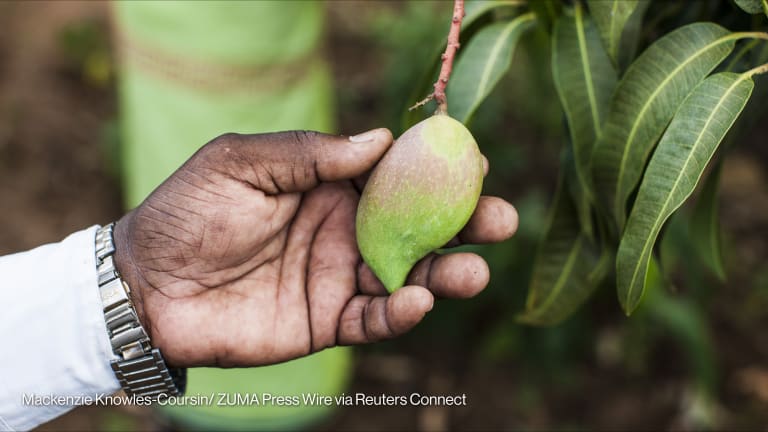
Africa’s agriculture sector faces long-standing obstacles and opportunities. Many challenges — related to climate change and drought; pests and disease, such as the recent locust infestation in East Africa; gender gaps in access to land, as well as agricultural inputs and extension; and trade — affect farm productivity and nutrition security in intersecting and overlapping ways.
Addressing these obstacles is critical, given the role that agriculture plays in so many livelihoods, and COVID-19’s impacts on economic welfare make finding solutions more urgent.
The IGNITE project designed a set of tools to help organizations integrate gender- and nutrition-sensitive approaches into their ways of doing business. These include a diagnostic tool for gender and nutrition capacity, a training tool for the Women’s Empowerment in Agriculture Index, and a guidance tool for nutrition strategy.
While many institutions implement agriculture, gender, and nutrition projects to address these issues, project-level change may not be enough to promote long-term transformation of the sector. Institutions must also incorporate nutrition and gender considerations into internal policies and business practices for deep and broad sectorwide transformation.
The Impacting Gender & Nutrition through Innovative Technical Exchange in Agriculture — or IGNITE — project, implemented by Tanager, Laterite, and 60 Decibels, works with and within organizations to integrate gender and nutrition into agriculture activities and institutional practices.
Based on IGNITE’s work with 10 clients across sub-Saharan Africa, including NGOs, government institutions, research organizations, and private sector entities, we know that when institutions address their own internal practices and ways of doing business, they can better effect change.
Here are four ways to help create lasting change:
1. Identify the problem
First is identifying the problem. To do so, however, organizations need to determine the status of gender and nutrition in their activities and then establish pathways to further integrate these areas into their work.
IGNITE begins with organizationwide audits to identify where additional resources are needed. We use several tools, including those developed by IGNITE, along with broader industry audit tools. These resources help institutions identify the appropriate place to start and sequence activities.
For instance, an institution may have a gender policy in place, but staffers are not aware of or do not adhere to the policy. An audit highlights this discrepancy and tells the institution that it should focus on sensitizing the staff to policy requirements and tracking adherence.
IGNITE’s audit is unique because it provides a holistic picture of how gender programming and nutrition programming interact with each other to create multiplier effects across both areas.
Institutions must ... incorporate nutrition and gender considerations into internal policies and business practices for deep and broad sectorwide transformation.
—2. Understand when to build capacity and when to train
Next is knowing when to build capacity or train. Organizations should not conflate the two. Trainings are critical for exchanging technical knowledge and sensitizing staffers but are not always the only, easiest, or most effective way to build capacity. Mentoring, staffing, and written guidance and templates — when applied in conjunction with a larger strategy and policy — also play an important role.
For example, IGNITE promoted mentoring by working with a private sector client to strengthen the capacity of the technical focal point and program manager. The goal of this mentorship was to show the specialist and manager how to effectively advocate within the organization for gender and nutrition training, hiring, support for staffers, and resourcing.
The mentorship sessions helped staffers make the business case for gender mainstreaming and nutrition integration, and they identified areas to mainstream gender and integrate nutrition within the business. As a result, the company’s staffers were able to describe the tools and skills they could use to communicate with farmers and their communities.
3. Know how to recruit qualified gender and nutrition experts
With inadequate staffing being another pitfall, identifying and recruiting qualified, designated gender and nutrition experts can lead to institutional change. However, organizations may have difficulty justifying the cost of hiring them, especially if there is no institutional requirement to have such experts in their programming.
When organizations do not have funds for designated experts, they may attempt to shift their way of doing business by appointing gender or nutrition focal points.
Part of our The Future of Food Systems series
Find out how we can make food fair and healthy for all. Join the conversation using the hashtag #FoodSystems and visit our The Future of Food Systems page for more coverage.
IGNITE provides technical guidance on the competencies and capacities that organizations should consider when hiring a gender or nutrition expert; other industry experts have also developed helpful guides on this. IGNITE also provides clients with interview questions and guidance on the hiring process.
Organizations should recognize that focal points, if appointed instead of full-time hires, may need additional bandwidth, capacity building, or institutional resources to make their work effective and should set realistic expectations.
4. Use written resources to develop strategies and frameworks
Don’t reinvent the wheel; when creating strategies and frameworks, utilize written resources. Written guidance and templates can also build capacity without the resource intensity of a training or the time commitment of mentoring. Institutions especially want guidance on how to develop gender and nutrition strategies for project-level activities, as well as gender policies and nutrition approaches for organizational-level commitments.
IGNITE provides written guidance to help institutions develop these strategies, policies, or approaches. IGNITE also encourages client institutions to develop accountability frameworks and ways of tracking adherence to a policy or approach.
A key component of food systems in sub-Saharan Africa is the ability of diverse African agriculture organizations to address nutrition and women’s empowerment throughout their activities and ways of doing business.
Institutions must build their abilities to effectively address gender, women’s empowerment, and nutrition priorities — both externally and internally — to ensure that Africa’s farmers are more resilient to crises such as COVID-19 and climate change.
Visit the Future of Food Systems series for more coverage on food and nutrition — and importantly, how we can make food fair and healthy for all. You can join the conversation using the hashtag #FoodSystems.











